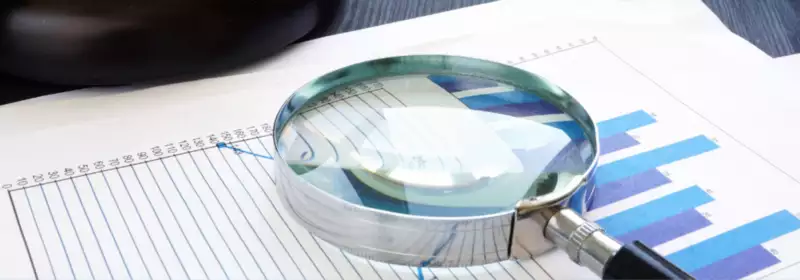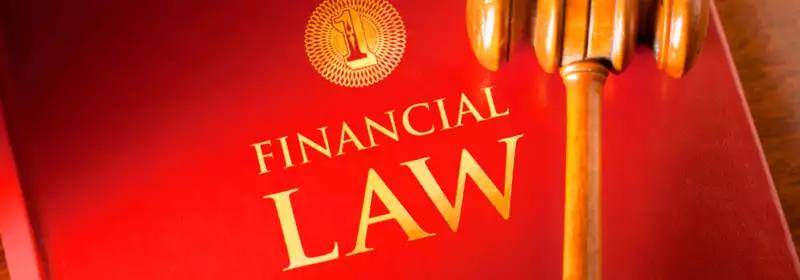A Forensic Accountant works within the branch of accountancy that investigates fraud and other financial misrepresentation. They’re trained to look past the numbers and see patterns that highlight the illegal activities of both individuals and businesses. Helping with anything from disputes with insurance companies to the funding of terrorism.
It’s a role combining problem-solving skills and mathematical acumen with a desire to identify criminal behaviour. Should you have the capabilities for everyday accounting but want a career that piques your interests, this could be ideal.
Not only is Forensic Accountancy an interesting profession, but it’s also one that pays considerably well. Starting salaries average at £35,000 in the UK, heading anywhere up to £80,000 with experience.
Considering you don’t have to spend years at university to qualify - though that is one route - this can be a great return on your investment.
But that’s not to say there isn’t a fair road ahead. Before you can qualify, you need to pass (or be exempt from) a series of professional exams. As well as complete relevant practical training.
So, before you take the plunge and start working towards the role, make sure it’s the right one for you. Plus, find out what exactly you need to do to become a Forensic Accountant.

Is being a Forensic Accountant right for me?
Becoming a detective of criminal financial activity certainly sounds like an exciting role. But as with any accounting profession, this entails scouring through mountains of financial data and transactional history.
You need to be prepared to look through considerable amounts of information to find evidence of discrepancies and inaccuracies. To build a case against a suspected criminal takes patience and meticulous attention to detail.
You’ll need to be confident with numbers and accounting systems, plus the business realities of situations, legal concepts and procedures. Your ability to analyse, interpret and present your findings clearly will enable lawyers to prosecute criminals. Or clear them of charges should they be innocent.
You’ll uncover new information, identify irregularities in documents and reports, measure losses, trace and recover illegitimate funds. But you can also work in other areas like commercial litigation, professional negligence, calculating lost profit and marital cases. You could even seek employment with businesses to initiate preventative activities to reduce their risk and improve their reputation.
In all instances, your workload will be diverse and ever-changing as you take on new cases.

The skills you’ll need
Aside from relevant professional qualifications, employers will be looking for certain skills and character traits. These will help them to see that you’re the right fit for this career. And allow you to stand out against the competition.
To be a successful Forensic Accountant, you need:
- Problem-solving skills
- To be commercially aware
- Extreme attention to detail
- Patience and willingness to thoroughly analyse data
- To present ideas and data clearly and concisely
- A logical and methodical approach
- To think creatively and be able to paint a picture of possible scenarios
- Sound judgement
- To be organised
- Able to juggle multiple tasks and manage your time
- To produce quality written reports
- Be confident with IT systems
- To be happy to present your findings in a court of law
How to qualify as a Forensic Accountant
While the appeal of Forensic Accounting is clear, the route into the role isn’t. There are many ways you can work towards your professional exams. With options better suited to both academic and hands-on learners.
Start from the Ground Up
As time goes on, the accounting profession is more open to hiring people with no prior skills or experience. More and more training schemes are offered to teach novice Accountants all they need to know. In line with the goals and values of the hiring company.
You can seek employment in a junior role and gain hands-on experience while you study for your professional exams.
Complete an Apprenticeship
Another work-based approach would be to complete an apprenticeship. You’ll learn the theory of accountancy through a training provider, then apply what you know in the workplace.
Apprenticeships are an alternate route to university, some also put you on a fast track to achieving chartered status. You can explore some here that are offered by the AAT.
These apprenticeships can take up to four years to complete while working a minimum of 30 hours a week. They are offered to those with school and college qualifications.
You can find specific apprenticeships for Forensic Accounting with larger Forensic Accountancy practices. Though you can move into forensics after qualifying as a standard Accountant.
Go to University
It used to be the case that you had to have a degree to become an Accountant, but more commonly this isn’t necessary. However, going to university is still an excellent way to study accounting in depth. Plus, more universities are offering undergraduate and master's programmes in Forensic Accounting.
Though, you can work your way into accounting with any degree subject. As any type of degree level study is a good base to work from. You’ll just need to complete relevant training with your employer and professional exams before you can specialise in forensics. This can be a big ask for employers to consider if other applicants have already studied an accounting degree. Your best bet would be to make sure you have the most relevant qualifications ahead of applying for jobs.
Study vocational courses
Vocational courses provide a faster route into accounting that can be studied ahead of accounting roles or alongside them. You can study Forensic Accounting courses with the Institute of Certified Forensic Accountants. They offer both certificates and diplomas in Forensic Accounting.
You can also study online with The Association of Accounting Technicians (AAT). They’re a world-renowned professional body of Accountants with members across 90 countries. They are also the UK’s leading qualification and membership body for vocational Accountants. So, their courses are often required for accountancy roles.
Whether you’re just starting out or you have accounting experience, they provide a clear route to becoming a qualified Accountant.
You can begin with a Level 2 Certificate, then work your way through their Level 3 and Level 4 Diplomas. Each level equips you to work in certain tiers of accounting roles. So you can put your education into practice with on the job learning.
After which, you can study higher level qualifications with the ACA, ACCA, ICAEW or CIMA. Enabling you to become a Chartered Accountant specialising in Forensic Accountancy.
Get started online
A huge benefit of vocational courses is that they can be studied online at home. So you can train to become a Forensic Accountant outside of your current commitments.
There’s no need to quit your job to study or arrange for childcare to attend class. Just log on when you have the time and work your way toward your new career.
This flexible learning approach removes the pressures and barriers that many people experience when looking to go back into education.
What’s more, all our online courses come with dedicated tutor support and flexible payment methods. So you have the help you need and less in the way of your new career.
learndirect is the leading provider of distance learning courses in the UK. Delivering many AAT qualifications that provide the perfect platform to launch any accounting career.
Study them and gain the skills and experience to move into any area of accountancy. Whether it be forensics, assurance, auditing, commercial or corporate finance. Allowing you the utmost freedom to progress and specialise in your career.
Click below to view our accounting courses in more detail.





















